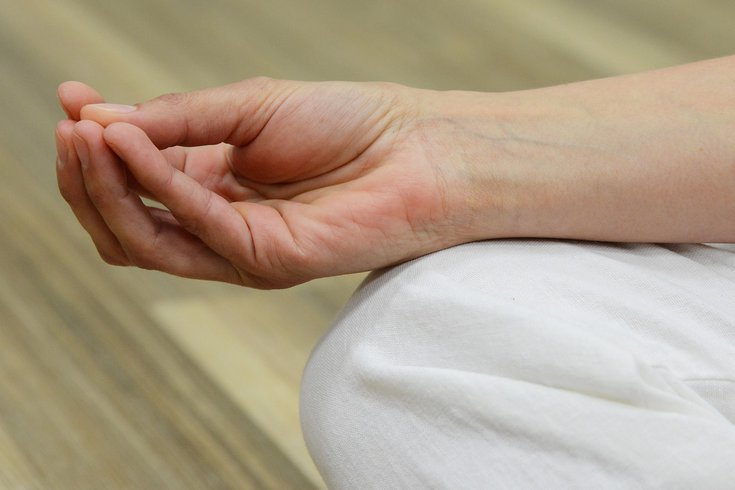
November 10, 2022
 Raimund Feher/Pixabay
Raimund Feher/Pixabay
A study that directly compared the effectiveness of a mindfulness meditation program and the medication Lexapro at treating anxiety found they both reduced severity of the condition by about 30%.
Mindfulness medication is just as effective as medication at treating anxiety, according to the first study to directly compare the two treatment methods.
They both resulted in a 30% reduction in anxiety severity over a two-month period among a study of about 200 people, researchers found. The participants' anxiety continued to decrease during the next four months, too.
The study compared Lexapro, a common drug used to treat depression and anxiety, with a mindfulness program that included 2 1/2 hours of classes weekly and 45 minutes of daily practice at home. Study participants were randomly assigned to receive one of the two treatment methods.
The average anxiety score on a psychiatric scale of 1 to 7 — the highest number indicating severe anxiety — was about 4.5 for all participants before starting treatment. Their scores dropped to about a 3 after two months and then continued to decline slightly at the three-month and six-month marks.
The meditation program used in the study, called Mindfulness-Based Stress Reduction, teaches people to focus on their breathing and to determine how they are feeling by focusing on one part of their bodies at a time. The point is to stay grounded in the present and not focus on the past or the future.
Researcher Elizabeth Hoge, director of Georgetown University's Anxiety Disorders Research Program, told the Associated Press that it can help people stop from focusing on negative thoughts. "It changes the relationship people have with their own thoughts when not meditating," she said.
In an interview with NPR, she gave this example: "Somebody with anxiety tends to worry about bad things that may happen, like failing an exam. When the thought comes up, then the person can learn to experience that as just a thought, not the truth or anything that needs to be acted on."
Prior research has suggested that mindfulness is better than no treatment at all, or at least as effective as education or behavioral therapy. This was the first study to test it against a psychiatric drug.
The World Health Organization reports that since the beginning of the COVID-19 pandemic, there has been a 25% increase in anxiety and depression worldwide.
In the U.S., children, adolescents and adults ages 18-44 are particularly struggling with anxiety. In response, the U.S. Preventive Services Task Force has recommended anxiety screening for adults under 65 and children and adolescents ages 8 to 18.
The National Institute of Mental Health estimates that about 31% of U.S. adults will experience an anxiety disorder at some point in their lives. The American Psychological Association's 2022 Stress In America Survey found that global uncertainty, rising prices due to inflation, supply chain issues and financial problems are the most significant sources of stress for adults in the U.S. right now.
Anxiety refers to a sustained and excessive worry that a person cannot control. Some people have anxiety over the anticipation of a future threat while others have anxiety over everyday social situations. People with anxiety often experience excessive worry, fatigue, irritability, panic attacks, paranoia, poor concentration, sleep disturbance, chest pain, upset stomach, headache, increased heart rate, shortness of breath and shaking.
Types of anxiety disorders include generalized anxiety disorder or chronic anxiety, obsessive-compulsive disorder, agoraphobia, panic disorder, post-traumatic stress disorder and social anxiety disorder. According to the Mayo Clinic, anxiety disorders are commonly treated with a combination of psychotherapy and medication. Deep breathing, exercise, journaling and meditation also can help.
The mindfulness meditation study was conducted at medical centers in Boston, New York and Washington.
The researchers reported 10 participants in the drug group dropped out because of side effects such as insomnia, nausea and fatigue, which may have been caused by the medication. Common side effects of the drug include diarrhea, loss of sexual desire, nausea and constipation. In extreme cases, some patients may experience suicidal thoughts.
There were no adverse events in the meditation group, but 13 participants reported feeling more anxiety than before they started treatment.
Adherence to treatment was lower in the meditation group than it was in the group who received the medication. The mindfulness meditation program requires a significant time commitment and financial resources. Hoge said she hopes the study's findings will encourage insurance companies to cover mindfulness-based programs as an additional treatment option for anxiety.